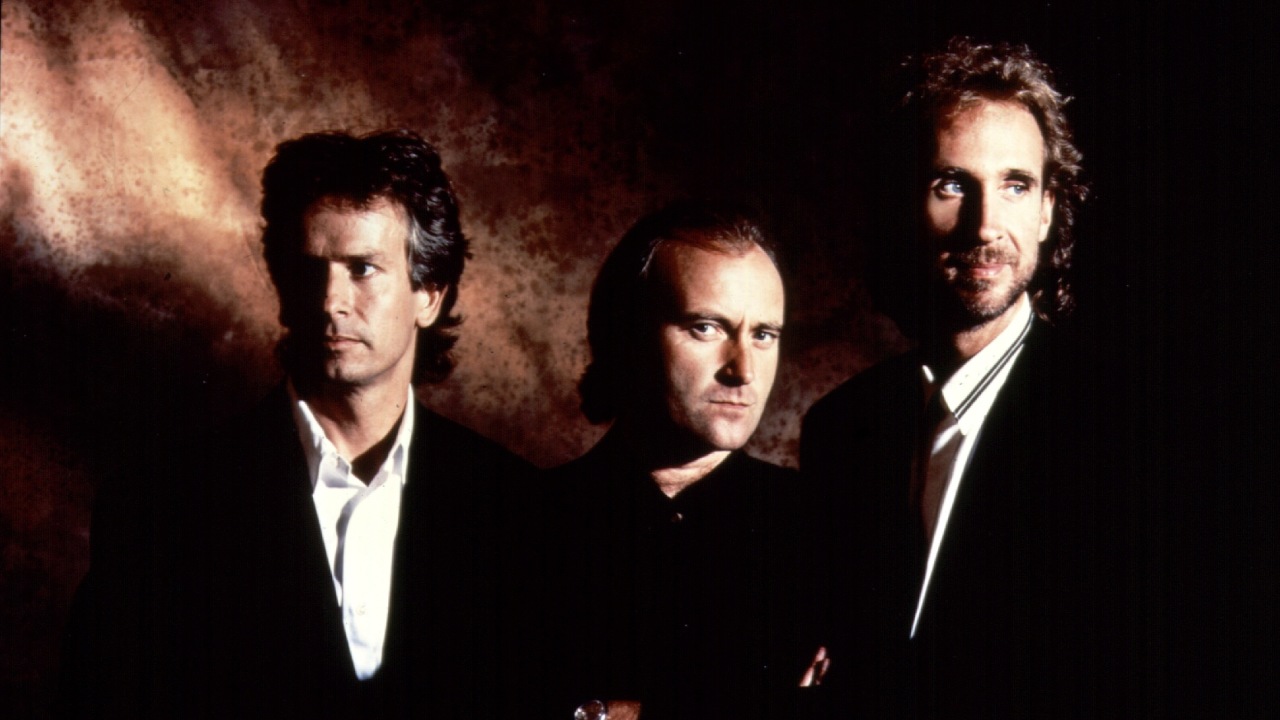You can trust Louder
Stadium success, to the slow-burning dinosaur, can be a career killer. Take Genesis. In the 14 years between their 1969 debut and 1983’s self-titled twelfth album they’d been hardy and prolific prog adventurers, skipping nimbly over the departure of singer Peter Gabriel, developing their sprawling baroque conceits into honed pop songs as a three-piece, creating a mid-period masterpiece in 1980’s Duke and surviving a disappointing experiment with synthpop on 1981’s clumsy Abacab.
Yet the 15 years covered by this stadium-era vinyl box set includes just four albums (two of them doubles). The mainstream proved to be the end of the road for Genesis.
Their stuttering out was all the more frustrating after their unstoppable early-80s trajectory. On Genesis they finally cracked the new electro formula they’d fluffed on Abacab. A dark, menacing tack cohered the album – Mama was a cackling goblin’s desperate love letter to a prostitute, Home By The Sea a tale of a criminal captured by the ghouls haunting the house he’s burgling – which was one of their most accomplished sets of prickly pop yet.
It paved the way perfectly for 1986’s Invisible Touch, the seven-million-selling success that effectively cracked the spinal column of their partnership. Its compulsive title track, the elegant In Too Deep and the singalong Land Of Confusion came to define mid-80s AOR, and tracks such as Tonight, Tonight, Tonight and Dominos were masterful amalgams of their early intricacy and more recent pop bluntness.
Then, after years of relentless productivity, stagnation. After six years of solo albums came 1991’s We Can’t Dance, their most expansive album since The Lamb but a record limited by the glories of ’86. Beyond the intense emotional wallop of domestic abuse lament No Son Of Mine, the Duke-esque Living Forever and a couple of tumultuous 10-minuters, it was an insipid facsimile of their magic…Touch, and the band soon fell apart.
With Collins absconding in his solo escape pod, Tony Banks and Mike Rutherford hobbled through one more album, 1998’s stodgy, bluesy Calling All Stations, with Ray Wilson on vocals. Wilson’s indelicate US rock style clashed with the parochial warmth of Gabriel and Collins, and only Banks’s trademark meandering synth fanfares were recognisably Genesis. The record flopped, and the fantastical prog dream was over bar the flash-bang reunion tour.
Beautifully packaged, Genesis 1983-1998 is the sound of brilliance attained and burn-out engaged./o:p
Sign up below to get the latest from Classic Rock, plus exclusive special offers, direct to your inbox!
Mark Beaumont is a music journalist with almost three decades' experience writing for publications including Classic Rock, NME, The Guardian, The Independent, The Telegraph, The Times, Uncut and Melody Maker. He has written major biographies on Muse, Jay-Z, The Killers, Kanye West and Bon Iver and his debut novel [6666666666] is available on Kindle.


